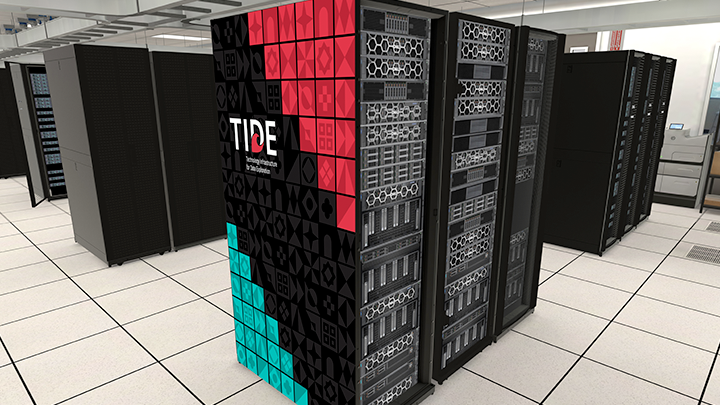SDSU-led TIDE project wins CENIC’s equity award
The project revolutionizes AI research accessibility and networking across CSU.

San Diego State University and its partners behind the TIDE project, a computational core facility designed to support research in machine learning and AI, have been presented CENIC’s 2024 Innovations in Networking Award for Equitable Access to Cyberinfrastructure.
The Technology Infrastructure for Data Exploration (TIDE) project will be California State University’s first computational shared service. Led by SDSU, the project will upgrade the system’s cyberinfrastructure and expand access for faculty and student researchers across the CSU.
“The CENIC Innovations in Networking Awards recognize exemplary people, projects, and organizations that leverage high-bandwidth networking,” CENIC (The Corporation for Education Network Initiatives in California) said in its press release announcing the award.
The collaboration between SDSU, CSU San Bernardino, Stanislaus State, Cal Poly Humboldt and the San Diego Supercomputer Center at University of California San Diego, will use high-performance graphical processing computing servers to accelerate artificial intelligence and machine learning calculations; tasks that can take days to perform on less powerful machines.
Installation and setup of the new servers are expected to be complete by April 2024, with researchers gaining access in May 2024.
Mike Farley, SDSU’s Chief Technology Research Officer, collaborated with SDSU IT Division faculty fellows, Vivian Huangfu in the Fowler College of Business, and Faramarz Valafar in the College of Health and Human Services to develop science drivers (use cases).
TIDE, available for early adopters now, is backed by a $991,749 grant from the National Science Foundation’s Office of Advanced Cyberinfrastructure. The project will be expanded into full production later this summer.
“This collaboration has enabled the establishment of a transformational computational core at San Diego State University, which will serve as a pivotal resource for the entire California State University system,” said Jerry Sheehan, an SDSU adjunct faculty member and principal investigator. Sheehan, former chief information officer at SDSU, is now the Salk Institute’s chief information officer.
“We are honored to receive the CENIC Equitable Access award, recognizing our commitment to advancing technological infrastructure and promoting equitable access to cutting-edge research and educational opportunities.”
CENIC is a nonprofit that provides advanced network-services and computing resources for California educational institutions ranging from kindergarten to public and private universities. CENIC’s annual Innovations in Networking Awards began in 2003.



